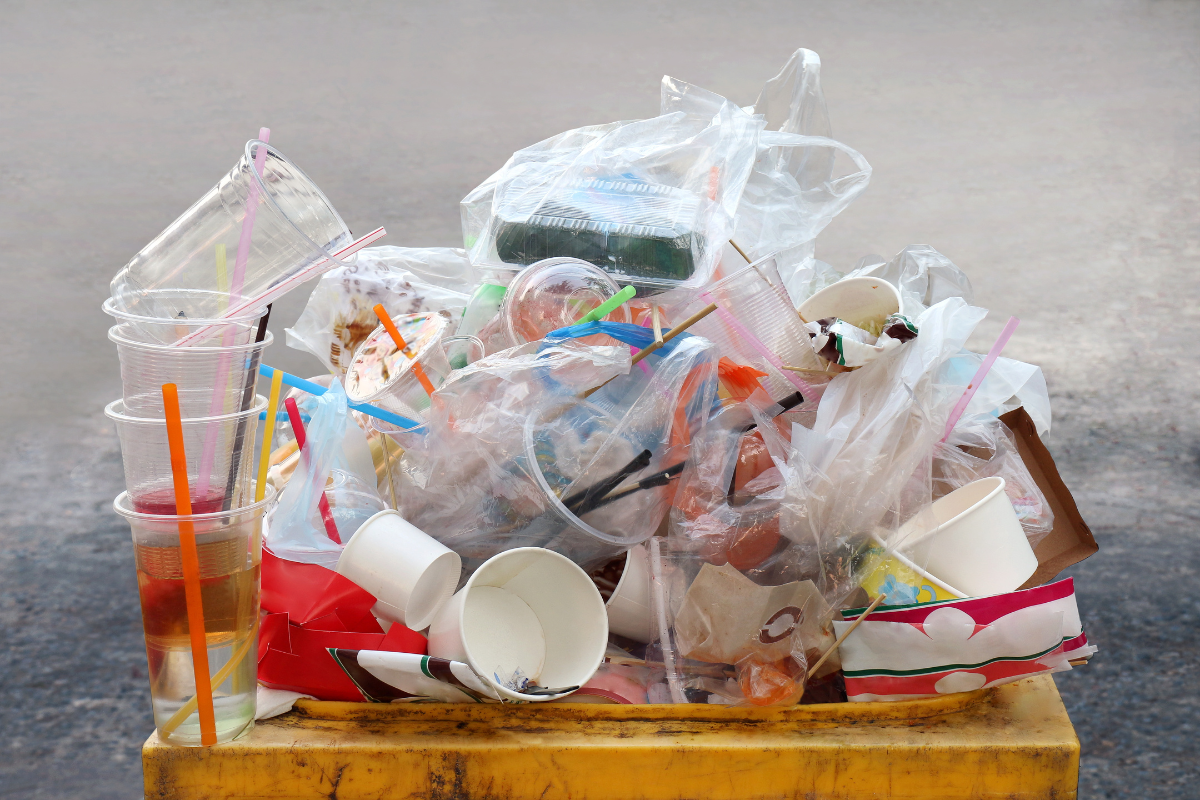
Analysts at the Organization for Economic Cooperation and Development estimate that with full global cooperation, plastics use in products could be reduced by 30% compared to 2020 levels. | DeawSS/Shutterstock
Countries must work together to enact policies that reduce virgin plastic demand, support design for recyclability, bolster recycling systems and improve collection.
That’s according to an analysis from the Organization for Economic Cooperation and Development (OECD), a global policy forum that counts developed countries among its members. The organization has been increasingly pushing for global collaboration on plastic waste over the past two years.
The new report analyzes likely plastic pollution results by 2040 under varying levels of global cooperation, with the greatest impact coming from what the OECD calls “global ambition,” a comprehensive, coordinated policy approach. It comes as U.N. members meet in Nairobi, Kenya this week to work towards an agreement to end the leakage of plastic waste into the environment by 2040.
The OECD estimates that by 2040, if no action is taken, more than 33 million short tons of macroplastic waste – bits of plastic waste that are larger than 5 millimeters – will enter the environment each year. In 2022, the OECD estimated 23 million short tons of this plastic became pollution.
With maximal global collaboration, the OECD estimates that by 2040 countries can work together to reduce plastic demand below 2020 levels, reduce plastics use in products by 30% compared to 2020 levels, quadruple the global plastics recycling rate to 42% and eliminate plastic leakage into the environment.
To achieve those results, the OECD says all world regions must “ambitiously ramp up policy action at all stages of the plastics lifecycle,” using policies like disincentives to virgin plastics use, design for recyclability, recycled content targets, EPR, and improved municipal collection and sorting.
And if governments don’t achieve an ambitious coordinated policy approach? The OECD predicts a situation in which countries independently enact a series of policies with varying stringency, leading to more modest gains: slowing the growth of virgin plastic demand by 15-30%; reducing plastic use in products by 10% compared to 2020 levels; increasing the recycling rate to 22% for non-OECD countries and 29% for OECD members; and reducing plastic leakage by 20% for non-OECD countries and eliminating it for OECD members.
The report also highlights that recycling alone isn’t enough to reduce current levels of plastic pollution. “Recycling breakthroughs and scaling up well-functioning international markets for scrap and secondary plastics” are key steps to reducing plastic entering the environment. But these are “likely insufficient to counter growth in primary plastic production and deliver substantial environmental gains,” the report states.
With recycling improvements alone, the OECD estimates that by 2040 about 23 million short tons of macroplastics – the same amount as 2022 – will continue to enter the environment each year. In other words, recycling improvements can prevent a significant increase, but not stop the current level of pollution, according to OECD.
The OECD plans to publish an expanded version of the report in the first half of 2024.

